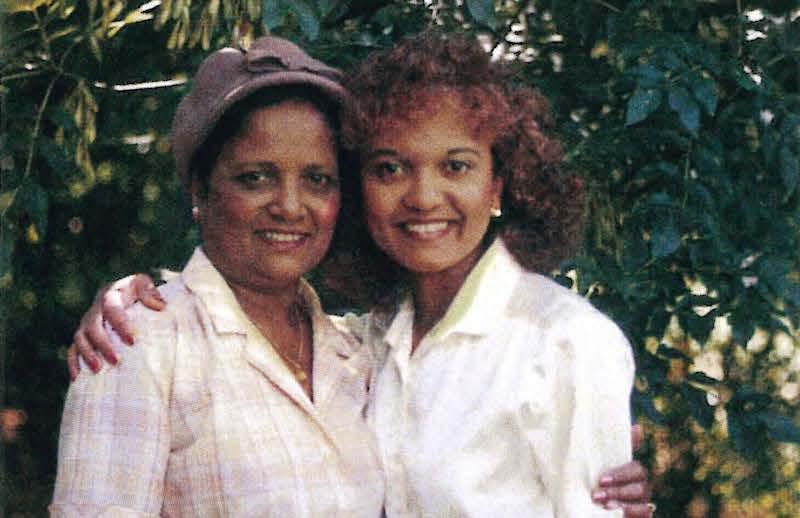
"Walk in my Shoes"
The word “educate” comes from the Latin educate, which means “to rear”. There is indeed a fundamental connection between educating and rearing children, which involves intimacy and nurturance. However, it is my experience that schools can be very isolating and authoritarian places where some students feel marginalized and denied opportunities. “As educators we often shrink from the truth about ourselves, our personal qualities, motivations, attitudes and areas of resistance to growth.”2 As a teacher in our educational system for over 18 years I have decided to share some of the personal stories that I have held within my heart because I have finally reached a place where I am comfortable enough to do so. These “episodes of recollection” may provide you with reasons to reflect on your daily interaction with your students. It is my hope that the stories I share will help educators to pose questions about schools and teaching and to examine their personal practices both in and out of the classroom. This excerpt is a reflection upon a few past experiences in my life as a student in both the elementary and secondary school systems in Ontario and are told from my perspective as a student.
In the autumn of 1969 my father began a new job and the family moved to a small town with a population of less than one thousand people in Southwestern Ontario.
Once again my parents prepare me for another move. I look forward to living in the country. I like the idea of my own room and a large house like the one we used to live in. I am excited about going to school and making some friends. The new location lives up to my expectations in many ways. The people are very welcoming to my family and my parents are happy. My brother is also happy. Our house has a large yard and there is a cemetery behind the house with big trees and plenty of open space. He can run and play.
I am 12 years old and arriving at my first school in Canada. I am introduced to my classmates. I knew the students would not be wearing uniforms as I did in Trinidad. But, looking around I notice that I am the only girl in the whole class who is wearing a dress that goes below the knee, and knee socks. I feel embarrassed by this.
Most of the girls are wearing shorts or mini skirts and nylons. They look so mature. I feel very self-conscious. I am also the only brown-skinned student in the whole school.
A few of my classmates smile and seem welcoming. Some of them I had met in Sunday School at church. Even though I speak excellent English, several children and teachers claim that they cannot understand me and I am constantly having to repeat what I say. This is frustrating. But schoolwork is easy. I have already had a year of Latin, Spanish and French.
Following the first period the teacher announces that it is such a great day that we would be going outside for a game. Everyone is very happy about this so I am happy also. After all there is no written work to do. Most of the kids go to their school bag and bring out funny looking hand covers. I would later learn that these were prized baseball gloves. I have never seen one before. I mention this to the boy who sits behind me in class and he says I could borrow his glove if I want to. I appreciate this gesture very much. I try to put it on my hand but put it on the wrong hand. It feels heavy and awkward so I give it back to him. Outside on the field, teams are being chosen. I am chosen at about the middle point. Still I have no idea about the game. My team is up to bat first. I watch as several of my classmates hit the ball hard and it travels very far into the field. The kids out in the savannah run and several of them miraculously catch the ball after it is hit. It is pretty amazing to watch. My turn comes, I have no idea how to hold the bat, where to stand, what the rules are, where to run to, but most significantly I don’t know that the ball is not a rubber bouncing ball, the kind I am used to playing with, back at home in Trinidad. I miss every shot at the ball; most embarrassing is when I run away from the ball for fear of being hit! There is laughter from everyone. At first I think it is funny too so I join in with a nervous laugh. But I am not able to figure what it is that is the funny thing. No one says anything, but I notice hushed whispers and looks.
Following that game I become the last or second to last to be chosen for baseball teams. The Physical Education teacher never speaks to me about the game, or demonstrates how to play. No one offers to help me learn the game. I grow to dislike gym days and game days. I wake up feeling sick on those days. Snow eventually brings relief.
High school is better in some ways. I am able to achieve high marks and there are other students who, like me, seem different but still fit. I am one of two brown-skinned students. The other is a boy whose father is from Jamaica. Right away some of my girl friends think that we should be a couple. This puzzles me since I don’t even know him.
An important change is that I now have two teachers who are not white. One teaches me Math and the other French. It is good to see them at the school even though they are from different countries than me. A few of the people on my school bus seem to think that all four of us, the two teachers, the boy and me are from the same country.
I realize very quickly that getting good grades opens doors for friends and other rewards. I work at sounding like my friends when I talk. I begin to dress like they do. But I still carry around my briefcase, which makes me stand out. Most of the kids carry their books packed in a pile in their hands. I try this at home and find it very awkward. But I know that it would be good for me to learn that technique of carrying books. So I continue to practice this art of book carrying and decide to try it.
Monday arrives. I take the neat stack of texts and notebooks, pencil case, lunch bag and my new glasses, which are kept in their case, into my arms. My friend calls on me and we walk over to the street to line up for the bus. We are crossing a main intersection. I get to the other side of the street and some of the kids are motioning to me that I have dropped something. I turn around in time to see my brand new glasses being run over by a car. I am shocked and devastated. I fear telling my parents since I had to convince my father to buy them because of their high price. I walk back to my house crying, feeling very low, wishing that I had continued using my briefcase, wishing I had worn my glasses, as my parents had requested, instead of keeping them in a case.
At school, my marks are very good. I have made friends and that is very pleasing to my parents. I have two friends that I eat lunch with regularly. They are in different classes than me and live in the town. I have several friends from the community that I spend time with on the bus and at church events. But, my last name poses a problem. People pronounce it incorrectly and it is frustrating. It was a fairly common name in Trinidad. Here it is unusual. It draws attention to me. I don’t like that attention. It makes me feel as if I don’t fit. I want to fit. My first name is fine. There are several other people with my first name, although the spelling is not the same.
One day after school while I am waiting for the bus, I start to talk to some of the girls lined up beside me waiting for another bus. They seem friendly and smile. In some ways they look white and in some ways they have characteristics that remind me of myself. My friend, who is standing behind me in line, calls me aside and says, “Don’t talk to those guys, they are nothing but trouble, they are Indians. They fight all the time and get drunk.” I am very confused by what she says. I say, “But I am Indian." She replies “Not that kind of Indian.” I walk back to my place in line and smile briefly at the girls waiting for their bus but I don’t say anything more to them. Later that evening I ask my father about the meanings of “ Indian.” I want to know what kind of “ Indian” I am. He gives me a history lesson. He uses words like prejudice and race. I listen to him, understanding some of what he says, but I am still worried that other people might mistake me for the bad “ Indians.”
Excerpted from When We Chose Canada: A Mother and Daughter Share Stories That Shaped Their Lives in Their New Homeland, by Sherry Ramrattan Smith and Rose Bickram Ramrattan. 1999.
References
References
1 Youngs, B. The 6 Vital Ingredients of Self-Esteem: How to Develop Them in Your Students. Rolling Hills Estates: Jalmar Press, 1992.
2 Rosenwald, George C. and Richard L. Ochbeg, eds., Storied Lives: The Cultural Politics of Self-Understanding. New Haven: Yale University Press, 1992.

